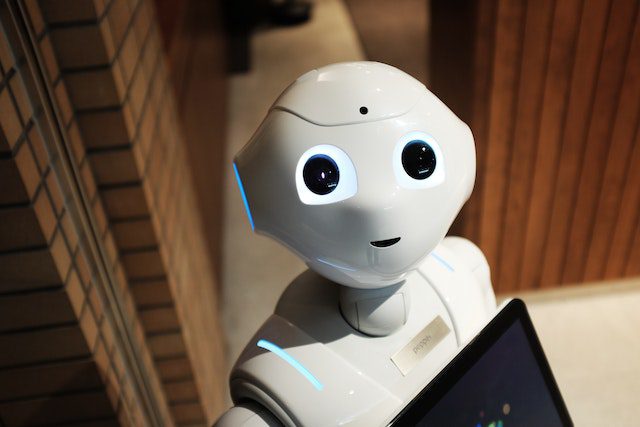Artificial intelligence (AI) is rapidly transforming the healthcare industry, with the potential to improve patient care, reduce costs, and improve efficiency. ai applications in healthcare is being used in a variety of healthcare including:
Thank you for reading this post, don't forget to subscribe!
- Diagnosis: AI can be used to analyze medical images and data to help doctors diagnose diseases more accurately and quickly. For example, AI is being used to detect cancer in medical images with a higher degree of accuracy than human radiologists.
- Treatment: AI can be used to personalize treatment plans for patients based on their individual characteristics and needs. For example, AI is being used to develop new drug therapies and to optimize the dosage of existing drugs for individual patients.
- Surgery: AI is being used to assist surgeons in performing procedures more precisely and safely. For example, AI is being used to develop robotic surgical systems that can perform complex operations with greater accuracy than human surgeons.
- Patient care: AI can be used to provide patients with personalized care plans and to track their progress. For example, AI is being used to develop chatbots that can answer patients’ questions and provide them with support.
- Administrative tasks: AI can be used to automate administrative tasks in healthcare, such as scheduling appointments, processing insurance claims, and managing patient records. This can free up healthcare professionals to focus on providing care to patients.
The potential benefits of AI in healthcare are significant, but there are also some challenges that need to be addressed. For example, AI algorithms need to be trained on large datasets of data, which can be expensive and time-consuming. Additionally, AI systems need to be validated to ensure that they are accurate and reliable.
Despite these challenges, the potential benefits of AI in healthcare are too great to ignore. As AI technology continues to develop, we can expect to see even more innovative applications of AI in healthcare in the years to come.

Here are some specific examples of how AI Applications in Healthcare is being used today:
- AI-powered medical imaging: AI is being used to analyze medical images, such as X-rays, CT scans, and MRIs, to help doctors detect diseases more accurately and quickly. For example, AI-powered systems are now being used to detect cancer in medical images with a higher degree of accuracy than human radiologists.
- AI-powered drug discovery: AI is being used to identify new drug targets and to develop new drug therapies. For example, AI is being used to screen millions of molecules to identify those that have the potential to treat specific diseases.
- AI-powered surgery: AI is being used to assist surgeons in performing procedures more precisely and safely. For example, AI-powered surgical robots can be used to perform complex operations with greater accuracy than human surgeons.
- AI-powered chatbots: AI is being used to develop chatbots that can answer patients’ questions and provide them with support. For example, AI-powered chatbots are now being used to provide patients with information about their conditions, to schedule appointments, and to answer their questions.
- AI-powered administrative tasks: AI is being used to automate administrative tasks in healthcare, such as scheduling appointments, processing insurance claims, and managing patient records. This can free up healthcare professionals to focus on providing care to patients.
These are just a few examples of how AI is being used in healthcare today. As AI technology continues to develop, we can expect to see even more innovative applications of AI in healthcare in the years to come.
Here are some of the challenges that need to be addressed in order to realize the full potential of AI in healthcare:
- Data availability: AI algorithms need to be trained on large datasets of data. However, healthcare data can be difficult to obtain and share. This is due to privacy concerns and the fact that healthcare data is often siloed in different systems.
- Algorithm validation: AI systems need to be validated to ensure that they are accurate and reliable. This can be a challenging task, as AI systems can be complex and difficult to understand.
- Bias: AI systems can be biased, if they are trained on data that is biased. This can lead to discrimination against certain groups of patients.
- Cost: AI systems can be expensive to develop and deploy. This can be a barrier to adoption in healthcare, where budgets are often tight.
Despite these challenges, the potential benefits of AI in healthcare are too great to ignore. As AI technology continues to develop, we can expect to see even more innovative applications of AI in healthcare in the years to come.
The development of AI applications in healthcare is still in its early stages, but the potential benefits are significant. AI has the potential to improve the accuracy, efficiency, and personalization of healthcare, and it could help to address some of the challenges facing the healthcare industry, such as the rising cost of healthcare and the shortage of healthcare professionals.
Dubai is well-positioned to be a leader in the development and implementation of AI applications in healthcare. The city has a strong focus on innovation, and it is home to a number of leading healthcare organizations and technology companies. As AI technology continues to develop, we can expect to see Dubai become a hub for AI-powered healthcare. People coming from different part of the world also trying to given new technology to dubai by taking help of international banks in dubai as they are playing huge role in stabilizing the economy of the country.
Here are some of the potential benefits of AI in healthcare

- Improved accuracy and efficiency: AI can be used to analyze large datasets of data to identify patterns and trends that would be difficult or impossible to detect by human experts. This can lead to improved accuracy in diagnosis and treatment, as well as more efficient use of resources.
- Personalized care: AI can be used to personalize treatment plans for patients based on their individual characteristics and needs. This can lead to better outcomes for patients and reduced costs for healthcare providers.
- Earlier detection of diseases: AI can be used to analyze medical images and data to detect diseases earlier than would be possible with traditional methods. This can lead to earlier treatment and better outcomes for patients.
- Improved decision-making: AI can be used to help healthcare professionals make better decisions about diagnosis, treatment, and resource allocation. This can lead to improved patient outcomes and reduced costs.
- Reduced administrative workload: AI can be used to automate administrative tasks in healthcare, such as scheduling appointments, processing insurance claims, and managing patient records. This can free up healthcare professionals to focus on providing care to patients.
These are just some of the potential benefits of AI applications in healthcare. As AI technology continues to develop, we can expect to see even more benefits in the years to come.
Here are some specific examples of how AI is being used in healthcare today:
- AI-powered medical imaging: AI is being used to analyze medical images, such as X-rays, CT scans, and MRIs, to help doctors detect diseases more accurately and quickly. For example, AI-powered systems are now being used to detect cancer in medical images with a higher degree of accuracy than human radiologists.
- AI-powered drug discovery: AI is being used to identify new drug targets and to develop new drug therapies. For example, AI is being used to screen millions of molecules to identify those that have the potential to treat specific diseases.
- AI-powered surgery: AI is being used to assist surgeons in performing procedures more precisely and safely. For example, AI-powered surgical robots can be used to perform complex operations with greater accuracy than human surgeons.
- AI-powered chatbots: AI is being used to develop chatbots that can answer patients’ questions and provide them with support. For example, AI-powered chatbots are now being used to provide patients with information about their conditions, to schedule appointments, and to answer their questions.
- AI-powered administrative tasks: AI is being used to automate administrative tasks in healthcare, such as scheduling appointments, processing insurance claims, and managing patient records. This can free up healthcare professionals to focus on providing care to patients.
These are just a few examples of how AI is being used in healthcare today. As AI technology continues to develop, we can expect to see even more innovative applications of AI in healthcare in the years to come.
The future of ai applications in healthcare is bright. With its potential to improve accuracy, efficiency, and personalization, AI has the potential to revolutionize the way healthcare is delivered.